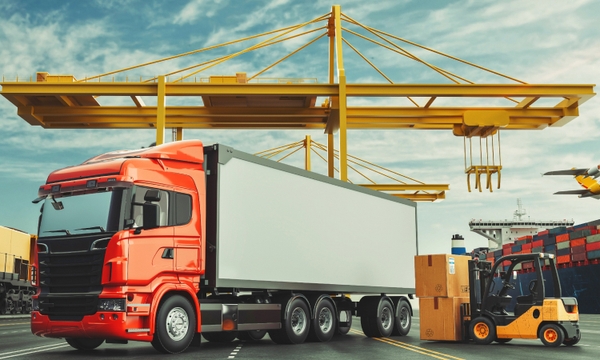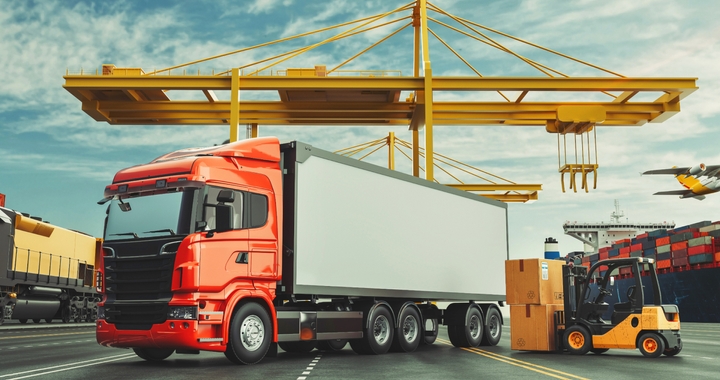Inland Haulage Charges

Shippers in the United States have long been struggling with high inland haulage charges. These charges, which are assessed by trucking companies for transporting goods from one point to another within the country, can add up quickly and make it difficult for businesses to keep their costs down. In recent years, however, there has been some relief for shippers as trucking companies have begun to offer more competitive rates.
Despite this relief, inland haulage charges are still a significant expense for many businesses. In order to keep their costs down, shippers need to be aware of the factors that affect these charges and how they can negotiate with trucking companies for the best possible rate.
What are Inland Haulage Charges (IHS)?
Inland Haulage Charges (IHS) are fees assessed by shippers or their designated agent for the transportation of goods via land within the country of origin. IHS fees are assessed based on the distance the goods travel and the type of commodity shipped. IHS can also be referred to as local charges, landbridge charges, or land-based transportation charges.

What Do Inland Haulage Charges Mean for Operators?
Inland haulage charges are typically based on the distance that goods are transported. The longer the distance, the higher the charge. This means that operators who transport goods over long distances will generally pay more in inland haulage charges than those who transport goods over shorter distances.
In addition, the type of goods being transported can also affect the amount of these charges. For example, operators who transport hazardous materials may be required to pay higher charges than those who transport non-hazardous materials.
Inland haulage charges can have a significant impact on an operator's business. This is why it's important for operators to understand what these charges mean and how they affect them. By understanding these charges, operators can make sure that they are able to budget properly for them and avoid any surprises down the road.
When Do Inland Haulage Charges Occur?
Inland haulage charges are fees that can be incurred when shipping goods via land transportation. These charges can apply to both full truckload (FTL) and less than truckload (LTL) shipping methods, and can be based on the distance traveled, the weight of the shipment, or other factors. In some cases, inland haulage charges may be included in the price of shipping, but in other cases, they may be additional fees.
When Do Inland Haulage Charges Not Apply?
There are several situations when inland haulage charges do not apply. These include:
- If the goods are being shipped within the same country of origin
- If the goods are being exported
- If the goods are being imported into a country that does not have a coastline (i.e., landlocked)
- If the goods are being transported by a mode of transport that does not use roads (i.e., rail, air, etc.)
In each of these cases, the inland haulage charges would not be applicable and would not need to be paid. This is because the charges only apply to goods being transported by road within a country. So, if the goods are not being transported by road, or if they are being transported out of the country, the charges would not apply.
What If There is No Inland Haulage Charge?
If you're shipping goods within the United States, you may be wondering what would happen if there is no inland haulage charge. In most cases, the shipper would simply absorb the cost of transporting the goods from one point to another. However, there are some instances where a shipper may choose to pass on the cost to the consignee.
The carrier may also have to arrange for alternative transportation. So it's important to check with your shipping company to see what their policy is regarding inland haulage charges.
Inland Haulage Charges (IHC) vs. Terminal Handling Charges (THC)
There are two types of charges that shippers need to take into account when shipping cargo: Inland Haulage Charges (IHC) and Terminal Handling Charges (THC). Both these charges are necessary in order to ensure that cargo arrives at its destination safely and on time. But what exactly is the difference between IHC and THC?
Inland Haulage Charges (IHC) are the fees charged by carriers for transporting goods from one point to another within their own country. This includes the cost of fuel, labor, and any other associated costs. On the other hand, Terminal Handling Charges (THC) are fees charged by carriers for loading and unloading cargo at seaports and airports. These charges cover the cost of labor, equipment, etc.
So, which type of charge is more expensive? It depends on the situation. In general, IHC will be more expensive when shipping cargo over long distances. This is because carriers need to factor in the cost of fuel and labor when calculating their charges. THC, on the other hand, is typically more expensive when shipping cargo over shorter distances. This is because the cost of loading and unloading cargo at seaports and airports can be quite high.
When it comes to deciding which type of charge is more expensive, shippers need to consider the specific needs of their shipment. If time is not a critical factor, then IHC may be the more cost-effective option. However, if time is of the essence, THC may be the better choice.
Conclusion: Inland Haulage Charges
The inland haulage charges are an important part of the total cost of transporting goods. They can vary significantly depending on the mode of transport, the distance to be traveled, and the weight of the goods.
In order to minimize the costs, it is important to choose the most efficient mode of transport and to plan the route carefully. It is also important to negotiate the best possible rate with the haulage company is also important. The inland haulage charges are a significant cost, but they can be managed effectively with careful planning.
Need more advice on inland haulage charges? Reach out to us and talk to our shipping and freight forwarding experts, who can tell you about these costs, how they work, and how you can minimize them.


